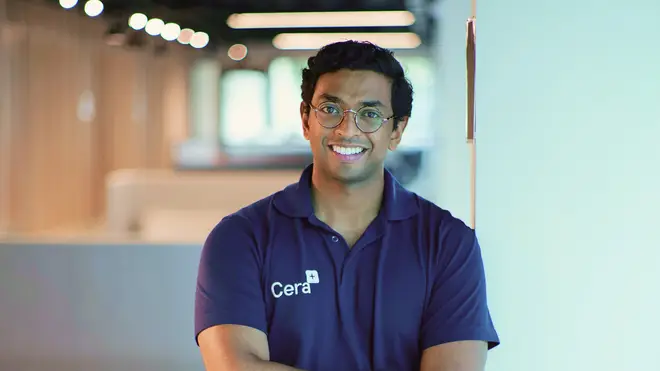
Clive Bull 1am - 4am
13 February 2024, 00:04

Data from a pilot showed the platform boosted care visits by more than a third.
A staff scheduling platform powered by artificial intelligence (AI) could help tackle NHS discharge delays and waiting lists, according to the founder of the company piloting the technology.
Social care provider and healthtech company Cera has implemented an AI staff scheduler which scans its database of available workers and matches them to the most appropriate patient.
Factors include training specialisms, languages spoken and the patient’s health condition.
Cera founder, Dr Ben Maruthappu, who launched the business in 2016 when he was a practising A&E medic, told the PA news agency: “This means that care can start almost instantly, rather than hours or even days later.
“The manual matching of patients and carers would usually take considerable time, depending on the efficiency of those doing the pairing and their assessments of available skills and patient needs.”
Cera is a private company, but the majority of its business is providing social care on behalf of the NHS and local authorities.
Its scheduling tool is being used in major cities like London, Liverpool and Birmingham, and the company plans to roll it out across the UK by the end of 2024.
Initial data from a pilot in Lancashire, which involved more than 6,000 care appointments, found the technology reduced staff travelling distance by 57% by assigning workers to patients in a closer vicinity.
This allowed carers to complete 33% more visits than they would have without using the AI scheduler.
Dr Maruthappu said that with the aid of the platform “patients can be discharged from hospital to home on the same day” in many cases.
“The industry norm sees this process usually taking days or weeks, and the 13,000 medically fit patients waiting in hospital beds is testament to the scale of this problem,” he added.
“Using AI in the way Cera does to appropriately speed up discharge into community care will make a significant difference in creating more hospital capacity, and in turn, help tackle waiting lists.”
Last week it was revealed about 7.60 million treatments were waiting to be carried out on the NHS in England at the end of December, relating to 6.37 million patients.
Prime Minister Rishi Sunak also admitted days earlier that he has failed on his pledge to bring them down.
Dr Maruthappu told PA the AI scheduler does not restrict carers’ time with patients, but “actually achieves the opposite”.
“The tool enables us to reach an optimal balance that focuses on improving the quality of home care being delivered,” he said.
“Efficiencies are driven by who is scheduled and how, rather than cutting care visit times.”
Dr Maruthappu believes AI “can revolutionise almost every part of social care, supporting frontline staff in going further for patients”.
“This belief sits at the very core of what Cera does because, via my own experiences as an NHS doctor and also as someone who needed to arrange home care for a loved one, I have first-hand experience of where the challenges lie.
“It’s this lived experience that has driven Cera’s innovation.
“We’re at the beginning of an AI revolution in healthcare and I truly believe no sector is in greater need. Social care is a sector rife with paperwork and AI can help automate much of this, giving staff time back to focus on delivering care and improving quality.”
He also warned a “total revamp” of social care “will not be achieved by simply throwing more money at recruitment and existing care structures” but instead “via a complete refocus around how technology can underpin social care operations”.
Cera has been building AI products since 2021.
Its portfolio comprises technology that can predict when elderly patients are most likely to have a fall, allowing carers to intervene and prevent a trip to hospital, as well as Cera Voice, an automated AI phonecall that gets in contact with patients daily to ask them specific health questions and determine their risk of falling ill.